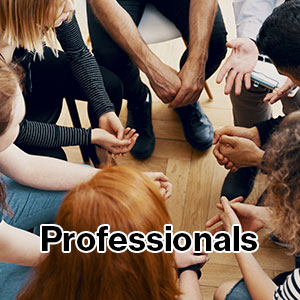The three topics included in the this section are:
Supporting Information and Resources:
School and Community Approach
This School and Community Approach guide to preventing and reducing substance use among young people in Highland contains advice and resources on evidence based ways to make a difference.
This Schools and drugs: health and social responses miniguide provides an overview of what to consider when planning or delivering health and social responses to drug-related problems at school, and reviews the available interventions and their effectiveness. It also considers implications for policy and practice.
If you would like support with this community approach, developing a school policy and / or help getting started with the lessons plans, please have a look at our offer to schools.
Highland Substance Awareness: Prevention and Education Framework
If you are a teacher, youth worker or other professional working to educate children and young people in Highland, this section is for you. Everyone delivering substance education to children and young people in Highland should be aware of the Highland Substance Awareness: Prevention and Education Framework. This outlines intended learning and outcomes for each stage of child development.
This section of the toolkit contains up to date information and advice to assist with the delivery of substance education in Highland. Please refer to the associated framework to determine the appropriateness of content for the class/pupils you wish to work with. The Quality Assurance Tool will help to assess the suitability of resources or inputs related to substance use education.
Lesson Plans
An additional section on Lesson Plans has been created specifically for teachers and other professionals that work with children and young people.
Language
It’s important to consider the words we use when discussing these issues. The way we talk about or refer to people with alcohol and drug problems can create stigma. This in turn can become a barrier to treatment and support for recovery.
We can all reduce stigma by using People First language. This means we focus on the person first, rather than behaviour – for example, people with alcohol or drug problems. Compassion supports recovery.
Language Matters because people Matter. Reduce stigma by putting people first.
The Language Matters briefing will help to guide you with this.
As an example, this news article example has been edited to use non-stigmatising language.
Scottish Families Affected by Alcohol and Drugs (SFAD) have developed this Reporting of Substance Media Toolkit – SFAD guide for journalists and editors.
Influential Adults
It is important that influential adults avoid saying and doing things that might lead to smoking being seen as the norm or desirable.
All adults who smoke can consider the impact of modelling smoking on children and young people in this helpful briefing paper.
Adverse Childhood Experiences
It’s also important to consider Adverse Childhood Experiences (ACEs) and how the impact of these can be mitigated. The Director of Public Health 2018 annual report delves deeper: Adverse Childhood Experiences, Resilience and Trauma Informed Care: A Public Health Approach to Understanding and Responding to Diversity.
Discussing Drugs and Alcohol with Young People (DDAYP) training
This is a free, interactive course that values the knowledge participants bring. Based on principles of Motivational Interviewing and brief interventions, this blended learning approach combines key reading before the 4 hour training session. Participants can then provide structure to opportunistic, non-confrontational conversations to support young people to make healthy lifestyle choices around drugs and alcohol. Designed for practitioners from all agencies that work with young people, who would like to develop skills in ‘raising the issue’ of drug and alcohol use, and have short but effective conversations about making changes.
Further information about this course, and other courses offered by the NHS Highland Health Improvement Team, can be found on the NHS Highland website.
- DDAYP Year 1 Report
- DDAYP Year 1 Further Evaluation
- DDAYP Year 2 Report
- DDAYP Year 2 Further Evaluation
- DDAYP Year 3 Report
- DDAYP Year 3 Further Evaluation
- DDAYP Year 4 Report
- DDAYP Year 4 Further Evaluation
- DDAYP poster – Faculty of Public Health Conference 2017
- DDAYP poster – Global Alcohol Policy Conference 2020
HIRS Resources
Further resources are available to order from NHS Highland’s Health Information and Resources Service (HIRS). To obtain resources from HIRS, you will need to register on the web site. You can search the site by subject. Materials can be delivered to your local NHS Hospital or GP premises, or collected from and returned to Southside Lodge, Inverness. Full details are available at Healthy Highlanders.
Policy
There are resources available to support substance use policy development in your school (access via the ASH Scotland moodle) or youth projects.
In conjunction with a Highland Primary School, we’ve developed a Smoke Free and Substance Aware School Policy, with input from pupils, school staff and the local community, and guidance from ASH Scotland. Please feel free to adapt this policy template with your primary school. If you’d like any advice or support with this please feel free to get in touch.
Child Protection is Everyone’s Responsibility
Please consult the Highland Child Protection Committee Help & Advice page if you have concerns about a child or young person.
Child Sexual Exploitation – substances often play a role in exploitation. Perpetrators of exploitation can target young people who may be using substances, or use substances as a ‘gift’ or ‘reward’ to further silence them and create a sense of dependency, blame, and shame. For support or information visit RISE Highlands.
